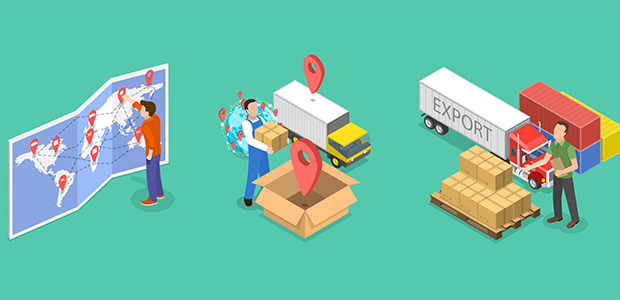
Starting a B2B Business: Simplifying Goods Transportation for Your Startup's Success
Starting a B2B business can be an exciting yet challenging endeavour, especially when it comes to managing logistics. For any new business dealing with physical goods, transportation is a crucial aspect that can impact costs, efficiency, and customer satisfaction.
Simplifying your transportation strategy early on is key to ensuring your startup’s success, especially when navigating international markets. From shipping goods across borders to managing customs, having a clear and effective logistics plan will not only reduce operational headaches but also support your business as it grows. In this article, we’ll explore essential considerations for simplifying goods transportation for startups, ensuring smooth and cost-effective shipping processes.
Choosing the Right Freight Options for Your B2B Startup
For any B2B startup, choosing the right freight options is one of the most important decisions you’ll make in your logistics strategy. Road, sea, and air freight each have their own advantages, and selecting the appropriate mode depends on factors like shipment size, delivery speed, and cost. Road freight, for example, is often ideal for transporting goods within Europe, offering flexibility and cost efficiency. It allows for direct door-to-door delivery, which is crucial for startups that rely on consistent delivery schedules and lower costs.
Air freight, while faster, can be more expensive and is typically reserved for high-value or time-sensitive goods. On the other hand, sea freight is cost-effective for large shipments, but the slower transit times make it less ideal for businesses requiring quick turnarounds. For startups, a mix of these freight methods, tailored to business needs, can be the most efficient approach.
Partnering with a reliable freight forwarder can simplify the decision-making process. With their expertise, you’ll gain access to valuable advice on the best shipping options based on your business model, ensuring you remain competitive without overextending your budget.
Navigating International Regulations and Customs
When expanding into international markets, one of the biggest hurdles startups face is navigating the complexities of regulations and customs. Each country has its own set of rules, documentation requirements, and tariffs, and failing to comply can result in costly delays or penalties. For a B2B business, time is money, so having a clear understanding of customs procedures is critical for ensuring smooth cross-border transactions.
A key part of simplifying your logistics strategy is working with a freight forwarder that specialises in international shipping. They can help you understand the documentation required, such as commercial invoices, packing lists, and certificates of origin, and ensure compliance with all relevant regulations. This is especially important when shipping from the UK to Europe or vice versa, where post-Brexit regulations have added additional layers of complexity to cross-border trade.
By ensuring that your goods meet all legal requirements before they leave your warehouse, you reduce the risk of delays at borders, improve delivery times, and maintain strong relationships with your international clients. Whether you’re shipping to new markets or expanding into existing ones, understanding international regulations is a critical part of building a robust logistics strategy for your startup.
Streamlining Shipping from Europe to the UK for Startups
Navigating the logistics of shipping from Europe to the UK can present several challenges, especially for startups that are new to international freight. From managing customs clearances to ensuring reliable delivery times, having a streamlined process is key to avoiding costly mistakes.
Working with an experienced freight forwarder can help simplify the entire process. A forwarder not only manages the movement of your goods but also offers expertise in optimising routes, consolidating shipments, and dealing with customs paperwork. This ensures that your goods travel quickly and efficiently, without unnecessary delays. Additionally, freight forwarders can offer insights into optimising packaging and labelling, ensuring your shipments comply with both UK and European regulations.
For startups looking to expand into international markets, streamlining the logistics process is essential for maintaining profitability and customer satisfaction. Whether you’re dealing with frequent shipments or occasional orders, a well-managed shipping process will support the growth of your business by ensuring that goods move seamlessly between borders.
Building a Strong Logistics Strategy for Startup Success
Simplifying goods transportation is a key factor in the success of any B2B startup. Whether you're managing domestic deliveries or expanding internationally, having a clear logistics strategy can help reduce costs, improve efficiency, and enhance customer satisfaction. By choosing the right freight options, understanding international regulations, and streamlining processes like shipping from Europe to the UK, startups can lay the foundation for long-term success. With the right approach, your transportation strategy can become a competitive advantage that supports your business as it grows.

